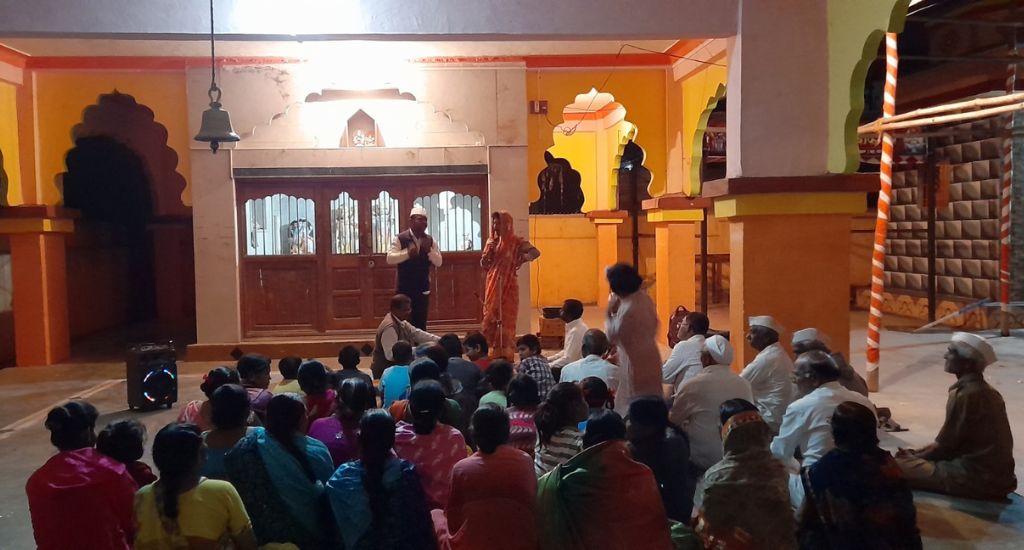
Maharashtra’s bharud poetry makes a splash
Water scarcity as well as poor sanitation and hygiene practices plagued villages in Maharashtra until bharud performances brought awareness and turned life around.

Water scarcity as well as poor sanitation and hygiene practices plagued villages in Maharashtra until bharud performances brought awareness and turned life around.
Gone are the challenges of water scarcity, poor sanitation and limited awareness about hygiene practices in the picturesque villages of Karegaon, Pargaon, Peth, Kurkundi and Wafgaon in Maharashtra.
The issues have been resolved to a large extent by WaterAid using bharud, a form of folk music of Maharashtra. With the cultural heritage of the state as their backdrop, the organisation’s team set out to engage and educate the local communities about water, sanitation and hygiene (WASH) practices.
Recognising the power of local culture to drive social change, WaterAid’s Pune team embarked on a transformative journey by incorporating bharud performances into their projects. Through the resonant notes of bharud, they sought to bridge the gap between local traditions and the pressing need for sustainable development. The initiative brought about remarkable changes, extending beyond the project villages.
Collaborating with local artistes and musicians, WaterAid crafted bharud performances that wove together the themes of water conservation, sanitation and hygiene. These vibrant and captivating shows not only entertained the villagers but also conveyed strong messages that struck at the heart of the communities’ challenges.

The performances were not limited to a mere spectacle. They ignited critical dialogues and awareness campaigns within communities. Recognising the significance of bharud in fostering social change, local cultural committees actively organised these performances, drawing large crowds and facilitating meaningful discussions on vital issues.
Also Read | Drinking water no longer a distant luxury for remote Bengal
As villagers began to understand the direct link between their practices and the hazards to their health, they actively participated in the projects to implement sustainable solutions.
Collaborating with local organisations, WaterAid facilitated the construction of water tanks, toilets and rainwater harvesting systems. These essential infrastructures alleviated water scarcity and provided clean and accessible water to the villages.
Extensive hygiene education programmes – bolstered by the messages conveyed through bharud performances – enlightened the communities on proper handwashing, menstrual health and the significance of safe water storage. Villagers embraced these newfound practices, recognising the impact on their overall well-being.
The results were nothing short of remarkable. Waterborne diseases, once rampant, saw a significant decline as access to clean water and improved sanitation facilities became the norm. The villagers emerged as powerful agents of change, inspiring neighbouring communities to follow their lead.

Beyond the confines of the project villages, the influence of bharud extended, creating a ripple effect of transformation throughout the region. WaterAid’s innovative approach had not only addressed the immediate challenges of water and sanitation but also empowered communities to take charge of their lives.
The success of this unique project demonstrated the immense potential that lies within local traditions to drive social progress and improve lives in ways that resonate deeply with people’s hearts and minds.
Bharud became a beacon of hope and a symbol of unity, inspiring communities to come together and create lasting change.
Also Read | Futuristic luxury in a water-scarce Himachal village
The lead image at the top shows a bharud performance taking place at Wafgaon in Maharashtra (Photo by Shweta Dwary)
Shweta Dwary is a water, sanitation and hygiene (WASH) professional currently serving as the project coordinator for Pune district at WaterAid.